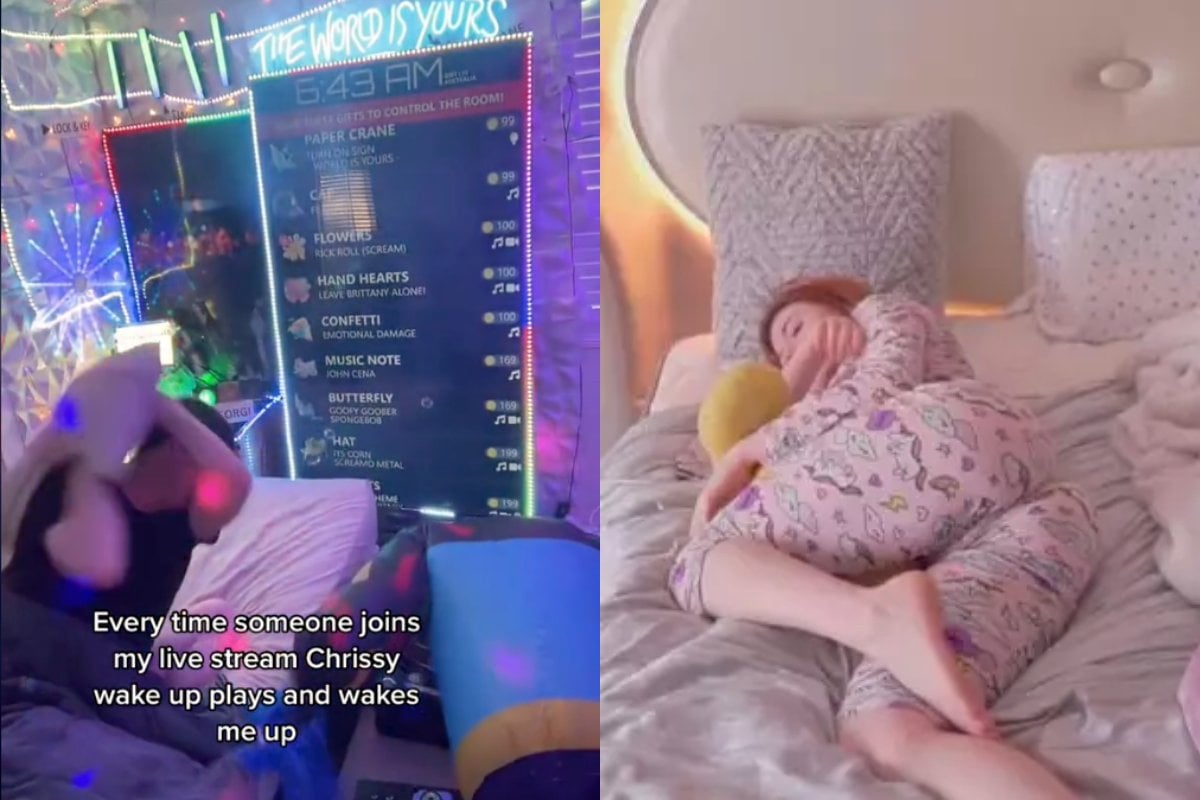
In the ever-evolving world of online influencing, it seems anything goes. We consume content about literally everything, from the wild to mundane.
One of the most popular types of content is simply watching other people do things. We watch people cook, clean, exercise, eat, play, go to the doctors, get dressed and do their makeup.
If we can watch it live, well, even better. In fact, live streaming has become one of the most popular types of video content consumed online, reaching almost a third of all internet users. Its popularity even prompted the launch of dedicated live streaming service, Twitch.
But if watching people go about their daily routine wasn't enough, these days we're watching people sleep, too.
Yep, you read that right.
While we’re up, unable to sleep, sleep-fluencers are doing quite the opposite, and making money in the process – while we watch on enviously.
What is a sleep-fluencer (or sleep-streamer)?
As the name suggests, a sleep-fluencer or sleep-streamer live streams themselves sleeping, while viewers... view them.
There are two types of sleep-influencers.
The first keeps things simple, literally live streaming themselves peacefully sleeping, sometimes for hours at a time. Usually, they’ll be sleeping at nighttime (when most people are asleep), giving insomniacs something to aspire to.
The other type is a little more disturbing. Their streams are both live and interactive, meaning they’ll attempt to go to sleep, but they'll do so in a room fitted with booby-traps that can be triggered by paying viewers.
